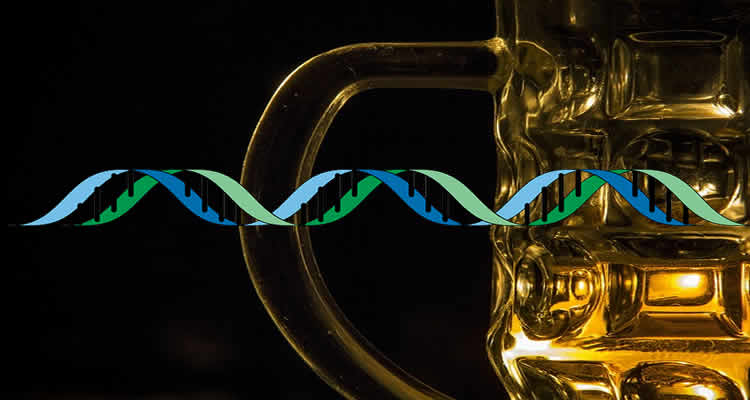Researchers at The University of Texas at Austin have identified a network of genes that appear to work together in determining alcohol dependence. The findings, which could lead to future treatments and therapies for alcoholics and possibly help doctors screen for alcoholism, are being published this week in the journal Molecular Psychiatry.
By comparing patterns of genetic code from the brain tissue of alcoholics and nonalcoholics, the researchers discovered a particular set of genes co-expressed together in the individuals who had consumed the most alcohol. Specifically, certain sets of genes were strongly linked as networks in alcoholics, but not in nonalcoholics.
“This provides the most comprehensive picture to date of the gene sets that drive alcohol dependence,” said R. Adron Harris, director of The University of Texas at Austin’s Waggoner Center for Alcohol and Addiction Research. “We now have a much clearer picture of where specific traits related to alcohol dependence overlap with specific expressions in genetic code.”
Scientists have known for some time that genetics play a role in alcoholism and addiction and that the tendency for dependence to be genetically linked is more complicated than the presence or absence of any one gene. The new research, however, represents the first time scientists used revolutionary bioinformatics technology of RNA sequencing to identify the specific group of different genes that, expressed together, are highly correlated with alcohol dependence.

“We hope our model can serve as a type of Wikipedia of alcohol dependence, helping to break down the complexities of alcohol dependence and becoming a reference for future research into drug therapies,” said Sean Farris, a postdoctoral fellow also at the Waggoner Center and lead author of the study.
Only three drugs have approval from the Food and Drug Administration to treat alcoholism, and none offers a silver bullet in helping people dependent on alcohol end their addiction. The identification of genetic factors and networks in the brains of alcoholics gives drug researchers more information to work from and may one day allow for better screenings to evaluate a person’s risk factors for alcohol dependence, possibly even before the onset of heavy drinking.
Authors of the study in addition to Farris are lead research scientist R. Dayne Mayfield of the Waggoner Center; bioinformatician Dhivya Arasappan of the Center for Systems and Synthetic Biology; Scott Hunicke-Smith, director of the Genomic Sequencing and Analysis Facility; and Harris, director of the Waggoner Center. All are from the university’s College of Natural Sciences.
Support for the research came from the National Institute on Alcohol Abuse and Alcoholism, with funding through the American Recovery and Reinvestment Act of 2009.
Contact: Christine Sinatra – UT Austin
Source: UT Austin press release
Image Source: The image is adapted from public domain images and is credited to NeuroscienceNews.com. We release this image into the public domain. Feel free to reuse
Original Research: Abstract for “Transcriptome organization for chronic alcohol abuse in human brain” by S P Farris, D Arasappan, S Hunicke-Smith, R A Harris and R D Mayfield in Molecular Psychiatry. Published online December 2 2014 doi:10.1038/mp.2014.159






